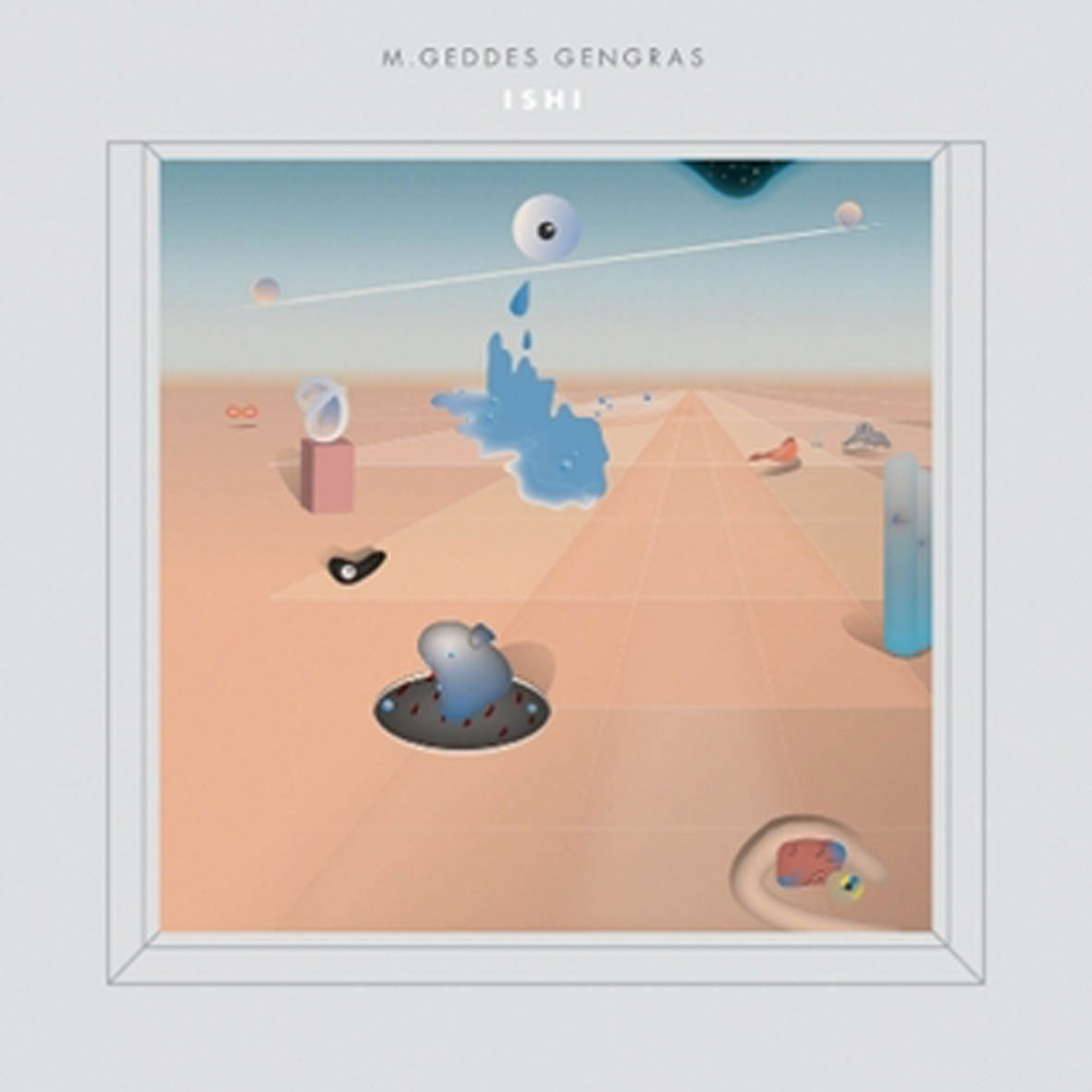 Last year's Collected Works Vol. I – The Moog Years was one of my favorite albums in recent memory, so I was very much looking forward to this suite of entirely new modular synth pieces from Gengras.  Naturally, my anticipation turned out to be justified, but the meditative, pastoral Ishi has a radically different feel than its moodier, more haunting predecessor.  While I happen to vastly prefer moodiness to serenity, Geddes' compositional talents and intuitive understanding of both space and pacing ensure that Ishi is still a characteristically enjoyable effort.
Last year's Collected Works Vol. I – The Moog Years was one of my favorite albums in recent memory, so I was very much looking forward to this suite of entirely new modular synth pieces from Gengras.  Naturally, my anticipation turned out to be justified, but the meditative, pastoral Ishi has a radically different feel than its moodier, more haunting predecessor.  While I happen to vastly prefer moodiness to serenity, Geddes' compositional talents and intuitive understanding of both space and pacing ensure that Ishi is still a characteristically enjoyable effort.
All other qualities aside, Ishi is likely to be the most conceptually ambitious modular synth album that I will ever hear, as it takes its name from "The Last Wild Indian," who was "discovered" in 1911.  That, however, was only the starting point for Gengras' inspiration, as Ishi’s story got him thinking about the gulf between our world and life on the fringes of it.  In essence, Ishi is an album about "the man who walks into our world understanding none of it but forced to live in it regardless."  Importantly, that is not abstraction, but a description of actual people from Gengras' actual life.  Given that (and Ishi's own nightmarish experience of losing absolutely everyone he knew), I would have expected this album to be a bit of a brooding and melancholy effort, but Geddes surprisingly went in the complete opposite direction: Ishi is a rather transcendent, celestial, and turbulence-free affair from start to finish.
It is also a rather brief one, consisting of just three songs and clocking in around 35 minutes.  The comparatively brief title piece opens the album with a dreamy, blissful thrum of lush swells enlivened by a bit of buried stuttering amidst the billowing chords.  The following "Passage" does not overtly stray terribly far from that template at all, but it is significantly better (and longer).  A lot of that success is due to the added length, as "Ishi" ends before it has a chance to become fully absorbing–being nearly twice as long, "Passage" does not have that problem.  There are some other notable enhancements to the formula as well though, as "Passage" is also considerably more vibrant, embellishing its heavenly reverie with layers of dynamically undulating, twinkling, and flanging synthesizer.  Also, its bliss-ocean is not entirely pure, as it is muddied by some welcome hints of spacey, retro-futurism.
The closing 18-minute epic "Threshold," however, brings the album unambiguously back to untroubled, oceanic synth bliss, evoking flickering shafts of sunlight amidst a sky filled with slow-moving clouds (or something similarly poetic).  In any case, it is quite pleasant and immersive, though the subtly more divergent "Passage" still feels like the album’s clear zenith.  That said, I cannot emphasize enough how similar Ishi’s three pieces all feel to one another–this album truly is just three variations of "warm swells of drifting bliss."  That is not necessarily a bad thing, as it makes for a well-sequenced and connected whole, but it makes differences between the individual pieces feel a bit beside the point.
All of that, of course, adds up to yet another solid effort by Gengras, but a comparatively minor one that feels less distinctive than much of his other recent work.  While Collected Works had an undeniable advantage in gradually taking shape over a few years of cassette releases, I do not think Ishi suffers from being rushed or from a regression or weakness of Gengras' compositional talents.  Geddes did not make any bad or false moves-he just skillfully made an unusually radiant and edgeless album that is probably exactly the album he wanted to make.  I am still a bit troubled by Ishi's lack of distictiveness, but I suspect that Gengras made a conscious effort to work as purely and egolessly as possible on this album.  Even if I am wrong, it certainly sounds like he did.  Of course, it is always dangerous to hypothesize about artist's motives and methods, so the real conclusion here is this: Ishi is a lush and pleasant album, but those looking for something deeper than that should investigate some of Gengras' previous work instead.
 
Read More

